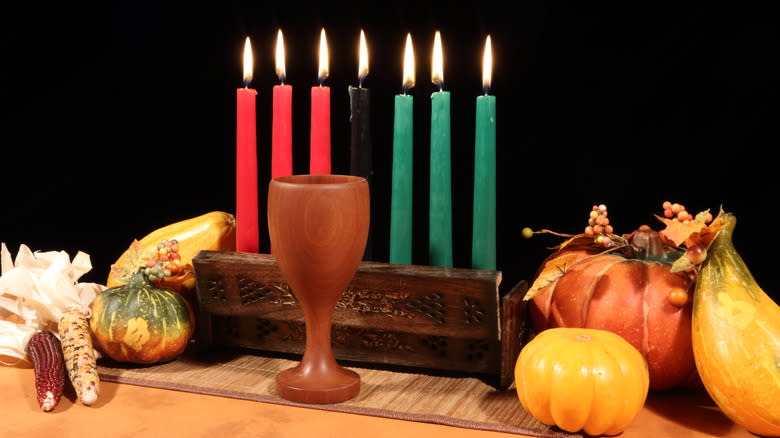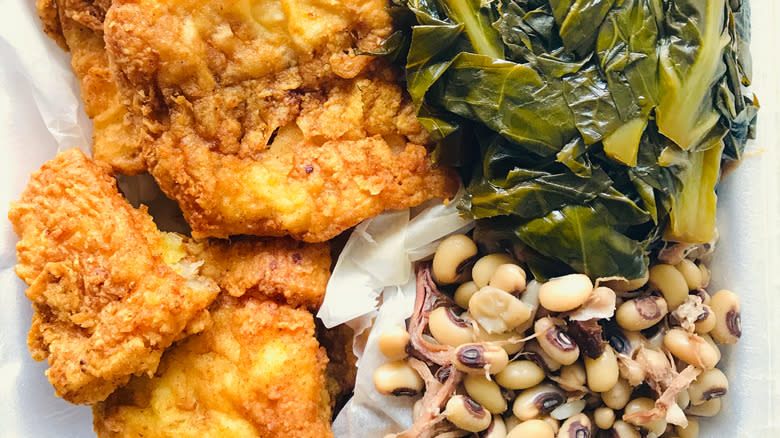The Symbolic Importance Of Soul Food For Kwanzaa

- Oops!Something went wrong.Please try again later.
Founded by university professor and activist Dr. Maulana Karenga in 1966, Kwanzaa is a secular celebration of the collective African American identity. One of the triumphs of the Civil Rights Movement, Kwanzaa empowers and unifies the Black community around seven key tenets over seven days. African Americans in the U.S., Canada, and the Caribbean celebrate the seven days of Kwanzaa from December 26 to January 1 with a symbolic action and object to represent the holiday's seven principles of unity, self-determination, collective responsibility, cooperative economics, purpose, creativity, and faith.
On the sixth day, families gather for the feast of Karamu, with a cornucopia of dishes that tell their own story of the African diaspora and the fusion of African and American culinary traditions over history. While there's no set menu, Southern soul food dishes are popular at Karamu tables and are an important Kwanzaa food tradition because they exemplify the West African legacy in African American cuisine.
Dishes like fried okra, Hoppin' John, and fried catfish are Southern favorites rooted in African traditions and ingredients. Kwanzaa gets its name from the Swahili term "matunda ya kwanza," which means "the first fruits of the harvest." Okra, collard greens, and black-eyed peas are well-known fruits of the African harvest as well as classic staples of Southern soul food.
Read more: 21 Delicious Ways To Use Up Leftover Rice
Classic Preparations And Accompaniments For A Kwanzaa Feast

Other famous soul food dishes that bridge the culinary gap between Africa and the Americas include oxtail stew, jerk chicken, candied yams, jambalaya, gumbo, jollof rice, cornbread, whiting, and fried plantains. Because Kwanzaa is a celebration of African unity, dishes from the African diaspora include Caribbean specialties in addition to soul food from the American South.
Consequently, you'll see Jamaican specialties like sweet potato pudding and beef patties, Haitian recipes like epsis for a fish marinade, and Puerto Rican mofongo, which is a Caribbean iteration of the West African dish fufu. In the spirit of inclusivity, Kwanzaa dishes also extend to authentic East African dishes like Ethiopian injera and West African dishes like fufu and peanut stew. While Karamu menus vary from household to household, soul food classics such as collard greens, corn, and black-eyed peas all have symbolic significance and ritualistic importance to Kwanzaa.
Corn, for example, represents the children and the future of the Black community. Corn is also a key ingredient in Southern cooking, and is used in cornbread, hush puppies, and cornmeal crusting for fried okra and catfish. Apart from being two prime food crops of the African diaspora and thus important Kwanzaa staples, collard greens and black-eyed peas are symbolic of prosperity and good luck, respectively.
Read the original article on Tasting Table.

